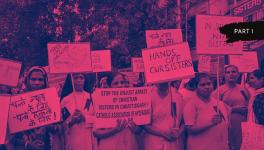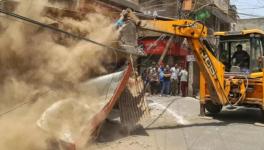SC Directs Provision of Dry Ration and Community Kitchens for Stranded Migrant Workers Nationwide
THE Supreme Court Monday directed that stranded migrant workers across the country should be provided dry ration under the Atma Nirbhar Scheme or any other scheme that is found suitable by the states or Central government.
It also directed all the states and union territories to make community kitchens operational for the stranded migrant workers, stating that it was their duty to do so given the workers had lost their employment and could not afford two meals a day.
“There shall be wide publicity with respect to the various schemes including the places of community kitchens so that such needy persons may, in fact, take benefits”, the court said.
A two-judge bench of Justices Ashok Bhushan and MR Shah passed these interim directions on an application filed by activists Anjali Bhardwaj, Harsh Mander and Jagdeep Chhokar in suo motu proceedings of the top court launched in 2020 during the first wave of Covid19.
On May 13, the bench had confined these directions to the National Capital Region (NCR). With today’s directions, this has now been extended throughout the country.
On the issue of direct cash transfers to migrant workers, the court said this was a matter of policy and would have to be covered by schemes framed by states and union territories. No direction for cash transfer could, therefore, be issued by the court to any category of persons unless they were covered by an existing scheme.
It, however, directed the states and union territories to file an affidavit informing the court of the details of schemes regarding cash transfers. This direction was made after the court found that a few states had made schemes for direct cash transfer to construction workers and different amounts from Rs.1,000/- to Rs.6,000/- had been transferred. However, there was no such direct transfer scheme with regard to workers in other unorganized sectors.
The court also observed that the registration of unorganized Workers should be completed as early as possible and there should be Common National Database for all organised workers situate in different States in the entire country.
It added there should be a suitable mechanism to monitor supervise whether the benefits of the welfare schemes reach the beneficiaries which may be from grassroots levels to higher authorities with names& and places of beneficiaries so that the purposes for such schemes are is achieved.
The article was originally published in The Leaflet.
Get the latest reports & analysis with people's perspective on Protests, movements & deep analytical videos, discussions of the current affairs in your Telegram app. Subscribe to NewsClick's Telegram channel & get Real-Time updates on stories, as they get published on our website.
























